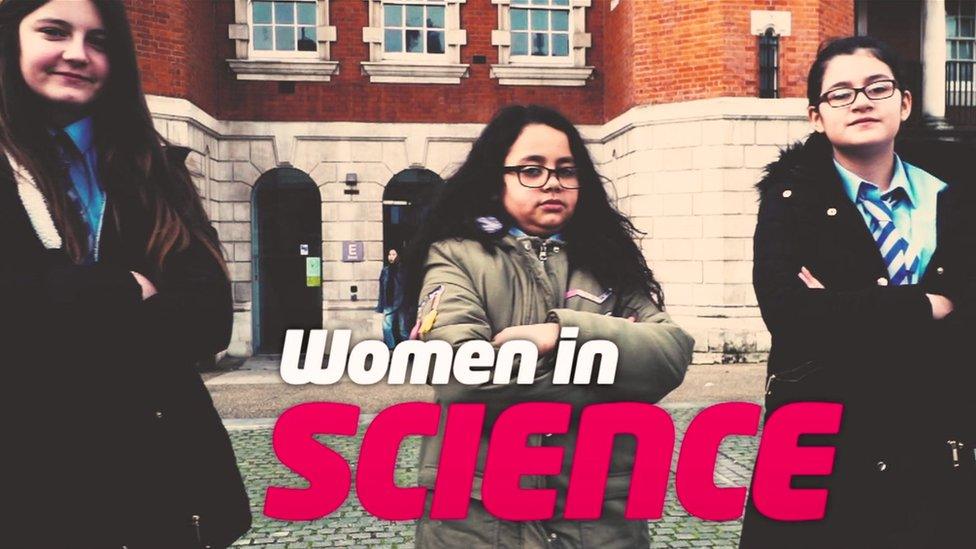Scientist Camille Schrier wins Miss Virginia by 'breaking stereotypes'
- Published
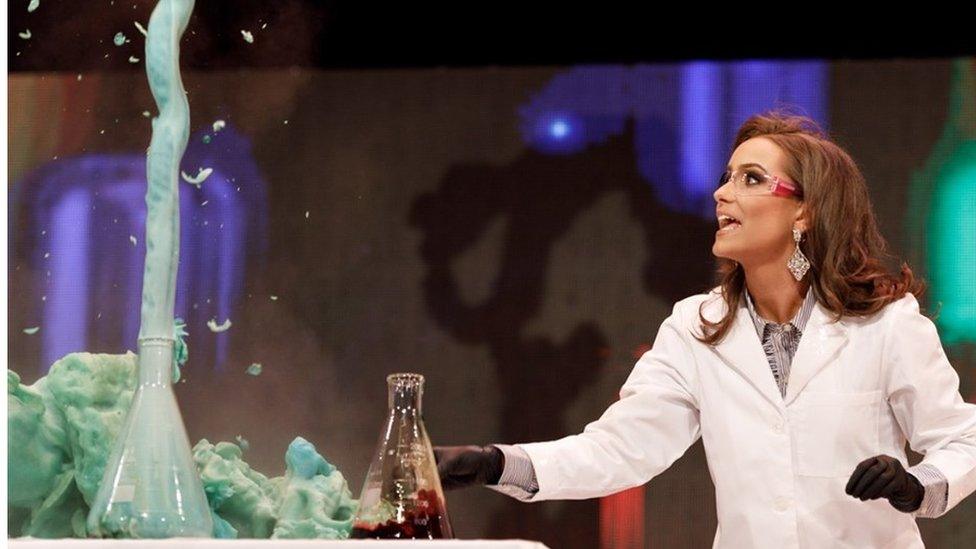
For the talent round of this year's Miss Virginia competition, most of the young female contestants chose to dance or sing.
But not biochemistry graduate Camille Schrier.
Instead of strutting her stuff, the 24 year-old performed a live experiment on stage - and was crowned the winner.
Now the self-confessed "quirky scientist" has told Radio 1 Newsbeat she wants to "break people's stereotypes".
Camille has two undergraduate science degrees and is studying a doctorate in pharmacy at Virginia Commonwealth University.
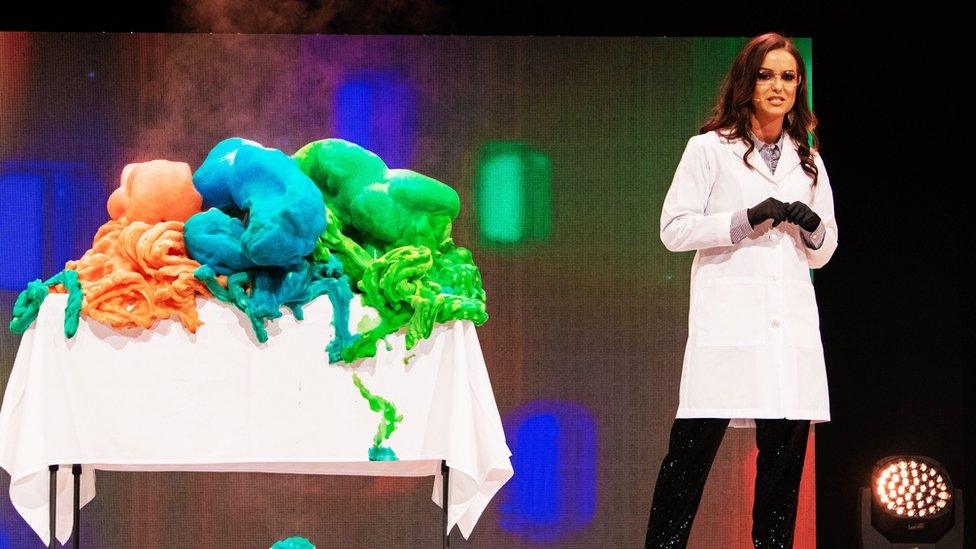
"I went in really representing myself as a woman of science," she told us, "and that was received really well."
She says her science experiment - which showed the catalytic decomposition of hydrogen peroxide - was a "big factor" in her win on June 22.
"I actually used dish soap (washing-up liquid to us Brits) in my beakers so the gas gets trapped, and that's what forms that foam that shoots out ... that's really the show-stopping moment of my reaction.
"Even my competitors were eager to watch what I was going to do. It was a fun moment to hear the cheers from people in the audience."
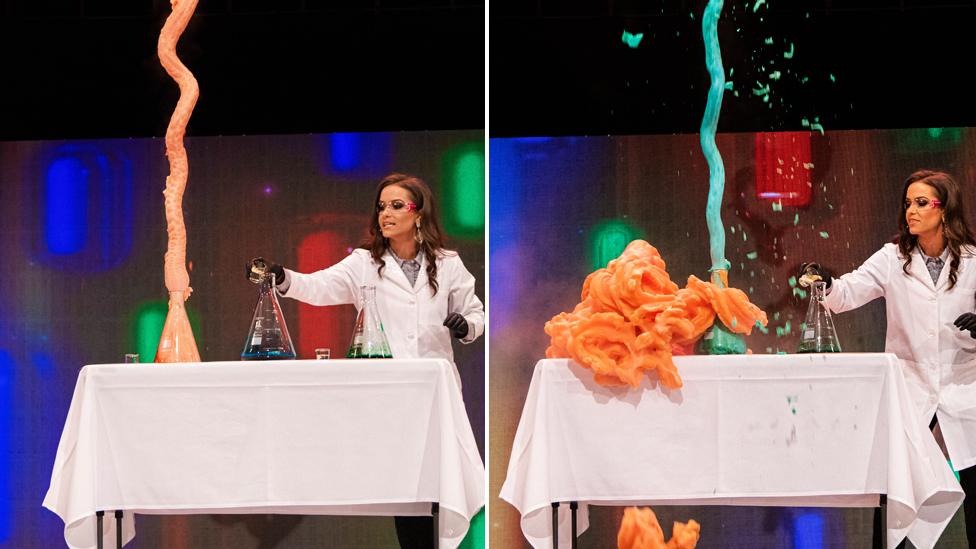
At first Camille didn't think she had a performing talent, but her mum encouraged her to show off her science knowledge.
"I took that as a challenge. It took a little creativity for me to find a way that I could represent the talents I have in a way that was entertaining because sometimes people have this perception that science is boring."
She admits there is still "controversy" over these competitions but says Miss America have "re-branded" and are more "progressive" by focusing more on women's achievements than appearances.
"I won almost $22,000 of scholarship money to put toward my graduate education.
"It's so much more than the quote-unquote 'beauty pageant' that it used to be. We've gone away from judging women on their physical characteristics, that's no longer anywhere in the judging criteria. We've removed swimsuit and we're focused on women's careers."
Camille has been taking part in competitions like this since she was a teenager and wants to spend her year as Miss Virginia "advocating for STEM education".
Allow Instagram content?
This article contains content provided by Instagram. We ask for your permission before anything is loaded, as they may be using cookies and other technologies. You may want to read Meta’s Instagram cookie policy, external and privacy policy, external before accepting. To view this content choose ‘accept and continue’.

Her goal is to use the experiment that helped her win by showing it in schools.
"I'm hoping to use this throughout the United States to get young people, especially young girls, interested in STEM and STEM careers, and hopefully be a role model for them.
"Also to encourage both young girls and young men to be themselves and not change who they are for any situation that they feel like they need to fit in a box."
Helen Wollaston from WISE Campaign, which encourages women and girls in the UK to go into STEM careers, says "out-dated views about what girls do and boys do have no place in today's world."
"The good news is that the number of girls choosing science subjects at school is going up. Five thousand more girls got an A level in a STEM subject last year compared to the year before. We need to encourage more though.
"Technology is everywhere in our lives these days - it is too important to leave it all to the guys!"
Camille will now go on to compete to be crowned Miss America later this year.


Follow Newsbeat on Instagram, external, Facebook, external, Twitter, external and YouTube, external.
Listen to Newsbeat live at 12:45 and 17:45 weekdays - or listen back here.
- Published5 June 2018
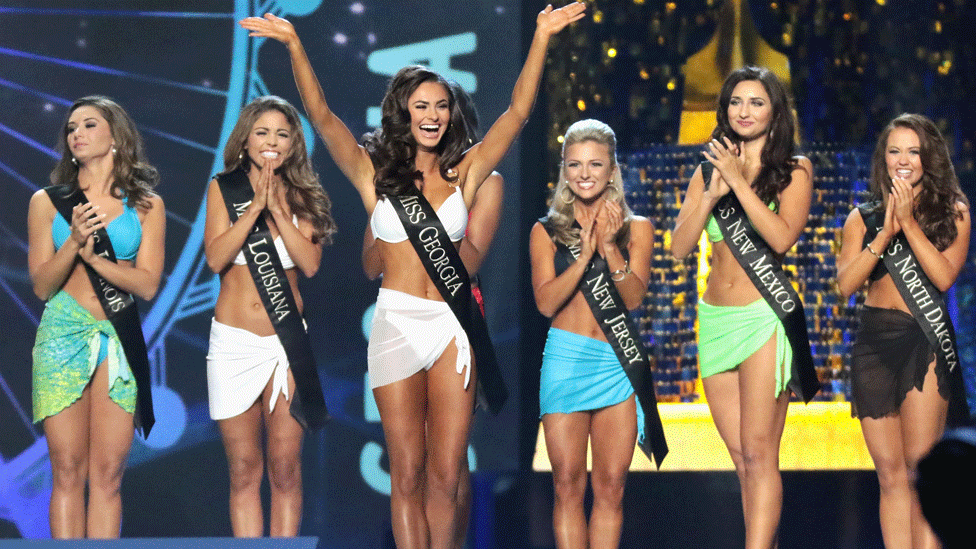
- Published6 May 2019
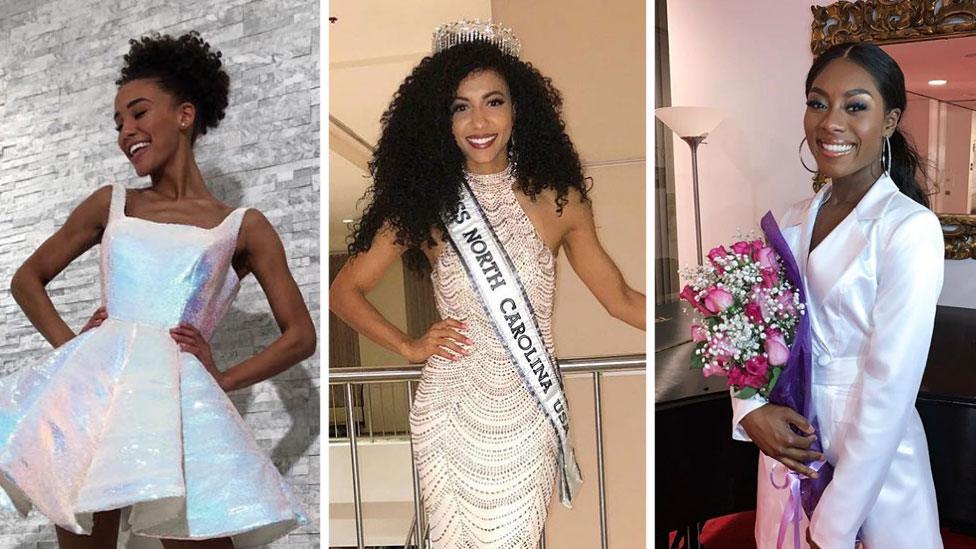
- Published19 June 2019
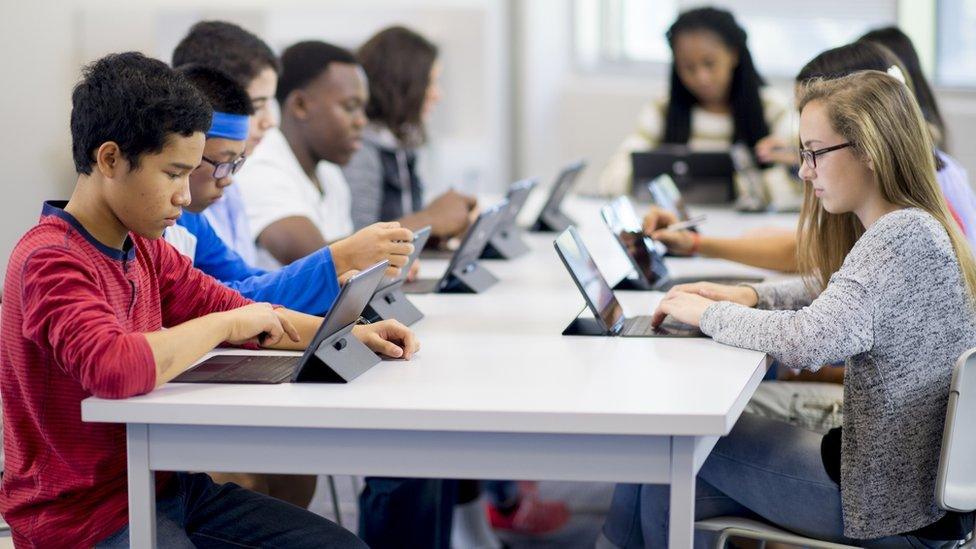
- Published11 February 2019
